




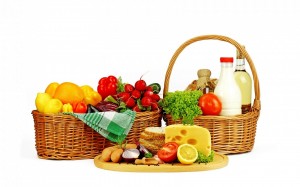
We know there is an important connection between nutrition and mental health. New and exciting research is surfacing almost every day. The relationship is clear; a deficiency in certain nutrients can cause mental disorders. This is especially apparent in regards to anxiety and depression. These nutrients include particular vitamins, minerals, amino acids, and omega 3 fatty acids. Most experts agree it is better to get these nutrients from food as opposed to supplements.
There is a synergistic relationship between nutrients in food that cannot be recreated in supplements.
Many nutrients rely on other nutrients to do their job. For instance, the body needs vitamin D to absorb calcium. Without enough vitamin D, calcium is not absorbed. And the amino acid, tryptophan, needs vitamin B6 to convert to the neurotransmitter, serotonin. When we eat a variety of healthy food, the body gets the combinations of nutrients it needs to feed the brain. Our brains use these nutrients to stabilize our moods and give clarity to our thinking.
Getting the most mental health food bang for your buck.
Eating right for mental health is pretty simple. You want to eat more real, whole, natural foods and less processed and junk food. The general rule of thumb is to eat a wide variety of food the way it grows from the ground, on vines, bushes and trees. Fruit, nuts, and vegetables in their original, natural, form. Meat and poultry should be organic, free-range, and grass-fed whenever possible. Dairy products like milk, yogurt and cheese are also best from organic grass-fed animals. Meat, eggs and dairy products from grass-fed animals are higher in omega 3 fatty acids. Here are some of the most nutrient dense, readily available, foods for the best mental health:
![]()
![]()
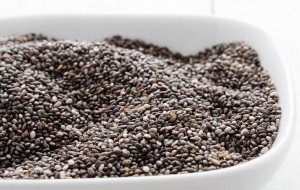
Chia seeds
These little powerhouses have an enormous amount of omega 3’s. One tablespoon packs 1769 mg of omega 3’s. The recommended daily amount of omega 3 is 1000-3000 mg. They also have a strong positive ratio to omega 6 at 583 mg – about 4:1. This gives you some omega 3’s “in the bank” so to speak where the goal is a 1:1 ratio of omega 3 to omega 6. They also have calcium, magnesium, and potassium.
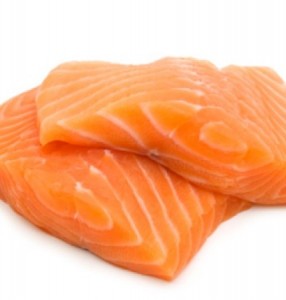
Salmon
Salmon is an excellent source of protein, vitamin D, and potassium. It is also one of the best sources of DHA omega 3 with a ratio to omega 6 of about 1:23! It is also high in B vitamins, including B12. Salmon provides tryptophan which converts to serotonin, an important mood regulator, in the brain.
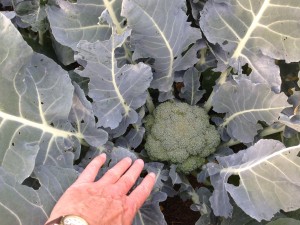
Broccoli
Broccoli is high in potassium, folate, and vitamin C. It also has a lot of fiber which acts a prebiotic. Prebiotics create a friendly environment for probiotic bacteria to flourish in the gut.
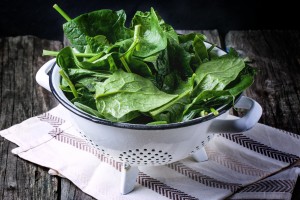
Spinach
This dark leafy green is a great source of iron, calcium, magnesium, potassium, and folate. It also has some omega 3’s in a ratio to omega 6 of 5:1. Other dark leafy greens like chard, kale, collard greens, and beet greens are also excellent sources of these nutrients. Leafy greens are versatile and easy to incorporate in various entrees and side dishes. They can be sauteed, steamed, added to soups and stews and even smoothies!
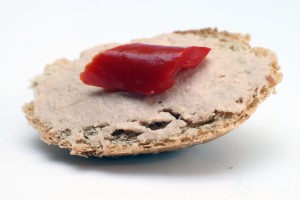
Liver
This is one of those foods that people seem to either love or hate. If you don’t like fried liver and onions, there are other ways to enjoy liver. Liverwurst sandwiches and liver pate on crackers are other ways to add liver to the diet. Chicken liver is a flavorful addition to gravies. All animal liver is high in mental health nutrients. The good news for people who haven’t developed a taste for it is that its nutrition is very concentrated. So, a little goes a long ways. Liver is high in protein, iron, potassium, selenium, zinc, niacin, B6, and folate. Liver’s most important claim to fame is its B12 content; 4 oz. of beef liver has over 1200% of the daily requirement of B12! Since B12 stores in our own livers, eating a small amount of liver once or twice a month will ensure adequate reserves of B12. I highly recommend eating only organic liver from grass fed animals.

Eggs
Besides fatty fish like salmon, and some mushrooms, eggs are one of the few food sources of vitamin D. They are high in protein and can also be a source of omega 3’s if they come from pasture raised chickens. Eggs are a good source of vitamin B12.
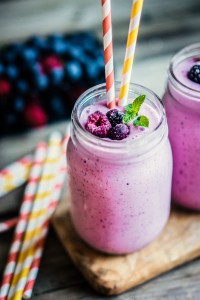
Yogurt
Yogurt is a cultured (fermented) food with billions of probiotic bacteria. Probiotics aid in breaking down nutrients for better absorption. This not only improves digestion, it allows the body and brain to better use the nutrients we consume. Recent research suggests a link between good gut health and good mental health. Good bacteria in the gut is essential for good gut health. Different brands of yogurt have different combinations of cultures (bacteria). It is good to switch between different brands to get a variety of bacteria. Also make sure the yogurt has live cultures. Greek yogurt generally has the highest protein content with a thicker consistency, making it a good substitute for sour cream. There are so many fun ways to eat yogurt. Add it to hot or cold cereal, to fruit parfaits and smoothies, potato topping, cold soups, salad dressings….the list is almost endless.
Besides probiotics and protein, yogurt is also an excellent source of calcium, potassium, and B vitamins, including B12.
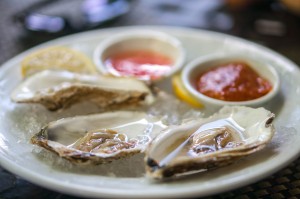
Oysters
Zinc is an important mental health nutrient and oysters are far and away higher in zinc than any other food. 4 oz of cooked oysters have more than 5X the recommended daily amount of zinc. Oysters are also good sources of vitamin B12, calcium, and magnesium.
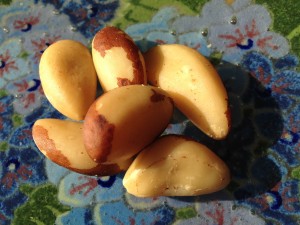
Brazil Nuts
This often overlooked nut is the King of Nuts when it comes to mental health nutrients. Like other nuts, the brazil nut is a great source of vitamin E, magnesium, and tryptophan. But the thing that distinguishes the brazil nut from all other nuts is its selenium content. Six brazil nuts have 537 mcg of selenium compared to almonds’ 0.2 mcg and cashews’ 0.7. One brazil nut provides about 125% of the daily requirement of selenium.
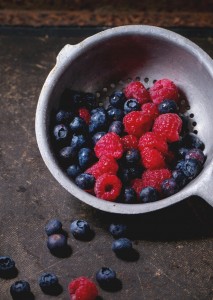
Berries
Blueberries, raspberries, strawberries, and blackberries as well as other berries are rich in vitamin C and other powerful antioxidants. They also have important fiber, potassium and digestive enzymes. Berries can be cooked or eaten raw, added to yogurt, cereal, or smoothies.
A good place to start
As stated earlier, there is a synergistic relationship between nutrients in food. Incorporating these “Top 10” foods into your diet will provide particular big-ticket nutrients. And because food is not just comprised of one or two nutrients, eating these foods will provide many other nutrients important to good mental health. The key to mental health nutrition is eating nutrient dense food as part of a wide variety of whole, real food.
Thank you for the “cornucopia” of healthy choices! Spinach and berries are staples in our household due to their versatility. Liver on the other hand, has not been due to the taste factor. But, now that I understand that a little goes a long way, maybe some Liverwurst will be added to the shopping list. Wonder what it would taste like on chia seed crackers with a dab of mustard? Think I’ll give it a try!
Dena, I’m thinking that will taste great! You could add a little slice of smoked cheese or something like that too.
Recipe cards have gone digital! Whole Foods Market has an app that offers you access to its collection of more than 3,700 recipes. It features a search option to browse by course, cuisine, special diet, and more. Once you find some dishes you’d like to try at home, you can add the ingredients to your shopping list.
Awesome! Thanks!
Great blog indeed. I like this kind of posts, as i am also a psychologist in Bhopal, India. To keep your mental health fit, you need to eat Broccoli, Salmon, Spinach, Liver, Eggs etc.
thank you SatyakantTrivedi
ANAR OR MATHLAM FRUIT IS BEST IN MENTAL HEALTH VISIT http://www.drsureshkguptan.com kerala palakkad 8089527350
hi it is good lot of thanks
thank you for each and every concerne that you people have always shown. all this effort you carry on has been of great importance to somenoe like me in my mental health and in also doing research.ever since i begun using your website i have changed and found something to keep m,e going
Hello, This is a nice website, thank you for taking the time to write the article for the brilliant write up.
Lovely blog on this topic. Can you write some more blogs on this topic? By the way, your writing style is fantastic.
Chia Seeds are awesome, we use them all the time.
Hiya very cool blog!! Man .. Beautiful ..
Amazing .. I’ll bookmark your blog and take the feeds additionally…I’m glad to find so many helpful information right here in the submit, we’d like work out
more techniques in this regard, thank you for sharing.
Why isn’t more attention given to all the research connecting the consumption of grains to an increased risk of autoimmune disorders and depression?
I comfort eat on cakes and sugary food
I would like to thank you for this wonderful post. I am now fan of your blog